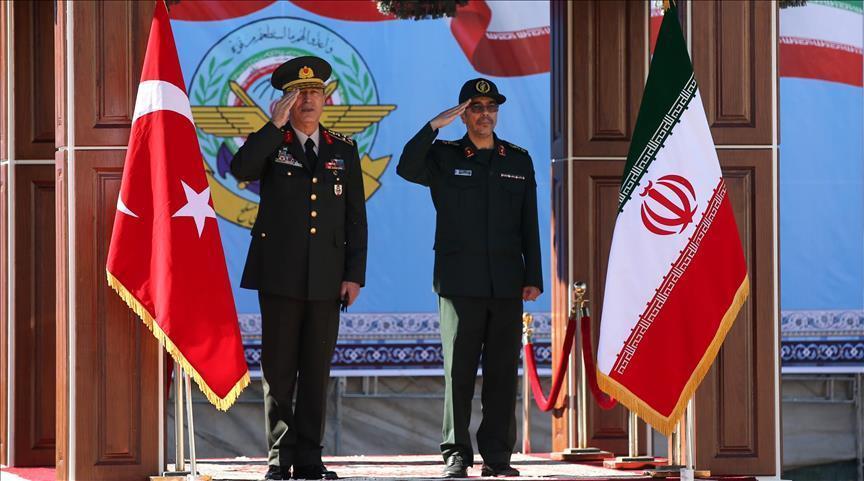Turkey’s top general Akar visits Iran amid Iraq crisis

Turkish Chief of General Staff Gen. Hulusi Akar visited Tehran on Oct. 2 to hold talks with his Iranian counterpart Major Gen. Mohammad Bagheri, as regional measures against the Kurdistan Regional Government (KRG) intensify following the Sept. 25 independence referendum.
Akar’s visit comes ahead of President Recep Tayyip Erdoğan’s visit to Tehran on Oct. 4 for a high-level cooperation council meeting.
“Turkey and Iran are two friendly countries that have shared common values for centuries. We are improving our cooperation against existing threats and risks,” Akar said in a joint press conference alongside his counterpart.
“In addition to our political and economic relations, we are developing our military relations,” he added, noting that the two countries have reached an agreement on the “struggle against terrorism and border security.”
Turkey and Iran have developed a “joint stance against the illegitimate referendum by the KRG,” said Bagheri.
“We share the same ideas on the territorial integrity of Iraq and reject the [KRG] referendum,” he added.
On Aug. 16, Iran’s top soldier paid a visit to Ankara and became the first Iranian top soldier to visit the Turkish capital.
Akar’s visit to Tehran came on the same day as Iranian and Iraqi forces conducted joint military exercises near the border with the KRG territories.
“Iraqi and Iranian units began exercises at 11:00 a.m. [08:00 GMT] with tanks and infantry only 250 meters from the border,” Shwan Abu Bakr, the Kurdish customs chief at the Bashmakh border post, told Agence France-Presse.
“Iraqi forces are dressed in black and there is a large number of Iranian forces,” he said. The black uniforms indicate Iraqi forces are from the country’s elite Counter Terrorism Service.
The Iranian military announced joint military exercises on its website with units of the Iraqi army involving armor and artillery units as well as drones and other aviation.
The maneuvers were the first official joint military exercises between Iran and Iraq since Iran’s 1979 Islamic Revolution.
Erdoğan’s upcoming Tehran meeting will concentrate on boosting bilateral cooperation in various fields such as transport, energy and trade, as well as political and cultural issues.
He reiterated on Oct. 1 that the KRG referendum was “against the Iraqi constitution.”
“We will never turn a blind eye to unrest beyond our borders, which will create a permanent threat both for the Iraqi and Turkish nations and other countries in the region,” Erdoğan said, speaking at the opening of the Turkish Parliament’s third legislative session.
He said Turkey would “never allow any threat against the historical Turkmen city of Kirkuk,” which is one of the territories disputed between the central Iraqi government and the KRG.
Meanwhile, Prime Minister Binali Yıldırım said at a meeting in Ankara on Oct. 2 that Turkey is “paying the price” for regional instability.
“As part of its mission, Turkey is preventing the spread of terrorist activities stemming from the authority vacuum in Syria, Iraq and the
Middle East to the Balkans and Europe. It is also making huge efforts for the establishment of permanent peace in Syria,” Yıldırım added.
“Turkey pays the most serious bill for all the instability in Iraq, Syria, Jerusalem and Palestine,” he said.
For its part, Baghdad called on the KRG to cancel the results of the referendum before engaging in dialogue.
“The KRG has to cancel the illegitimate referendum results to empower Iraq’s unity for a serious dialogue with Baghdad,” Prime Minister Haidar al-Abadi’s office said in a statement on Oct. 2.
The statement called on the KRG to “end provocation in the areas it seized and abide by the decisions taken by the federal and constitutional court.”
According to figures released by the KRG, almost 93 percent of voters cast ballots in favor of independence from Baghdad.
















